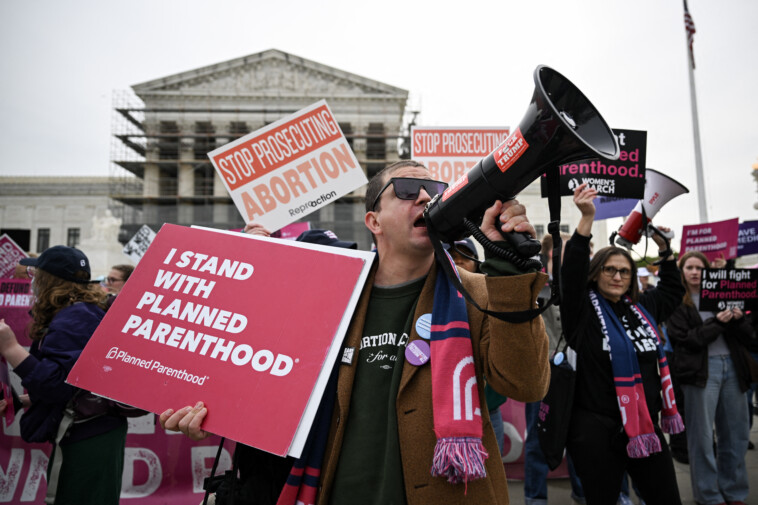Supreme Court justices seemed split Wednesday over Planned Parenthood’s challenge to South Carolina Gov. Henry McMaster’s 2018 executive order barring the nation’s largest abortion provider from receiving Medicaid funding.
Supporters of Planned Parenthood have argued that McMaster’s order runs afoul of the 1965 law creating Medicare and Medicaid, which states beneficiaries “may obtain” medical treatment from any qualified provider.
As a consequence, they say, Medicaid patients should be able to sue for the right to choose their own “qualified provider.”
The court’s three liberal justices — Ketanji Brown Jackson, Elena Kagan and Sonia Sotomayor — appeared convinced of that argument, while conservatives Amy Coney Barrett and Brett Kavanaugh suggested they could be persuaded to rule in Planned Parenthood’s favor.
South Carolina is arguing that such lawsuits are not permitted and that patients can make an administrative appeal if denied coverage.
“Because we understand colloquially that something might be a right,” said attorney John Bursch of the Alliance Defending Freedom, “doesn’t mean that Congress has put a state on clear notice that it could be sued in federal court … and subjected to liability and attorney fees shifting if it doesn’t follow that provision.”
“Telling a state that it has an obligation to do something or that it must provide something isn’t the same as saying you have the ability to sue them in federal court,” Bursch continued.
At one point, Kavanaugh vented that the judicial branch “has failed to give guidance … that lower courts can follow [and] that states, providers and beneficiaries can follow.
“One of my goals coming out of this will be to provide that clarity.”
Keep up with today’s most important news
Stay up on the very latest with Evening Update.
Thanks for signing up!
Planned Parenthood attorney Nicole Saharsky contended that the 1965 statute used “mandatory, individual-centric, right-creating language” and that the “only thing it doesn’t do is use the word ‘right.’”
“There’s no doubt of what Congress was trying to do here,” she contended. “It enacted this statute because states were artificially limiting the providers in Medicaid. And that’s the same thing that the state is doing now.”
The remaining three conservative justices were not convinced, with Neil Gorsuch saying that “one can imagine a statute written as an individual benefit” while being “mandatory on the states” but not “right-creating”
“The problem,” Justice Samuel Alito added, “is that Congress may well have had in mind — maybe it’s likely that what they had in mind — is simply that this is something that the state has to do, but not that this is something that allows an individual to sue in court.”
At one point, Barrett questioned whether a state would be forced to allow Medicaid funding for a doctor or healthcare provider that faced malpractice suits or had otherwise violated standards.
“Does it make sense, in that circumstance, for Congress to have wanted plaintiffs to have a right to come in and sue to say … that that’s my provider of choice?” she asked.
Saharsky responded by citing “qualified” provider language in the statute and suggesting that the states would be allowed to bar funding in that scenario.
Barrett also raised questions about whether the administrative appeal process touted by South Carolina would work for low-income patients who would have to risk paying out of pocket before they could appeal for reimbursement.
The Supreme Court is expected to make a decision in Medina v. Planned Parenthood South Atlantic by the end of June.
Oral arguments in the case come as the Trump administration has frozen family planning funding for Planned Parenthood under Title X.






